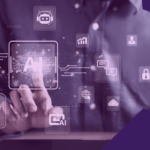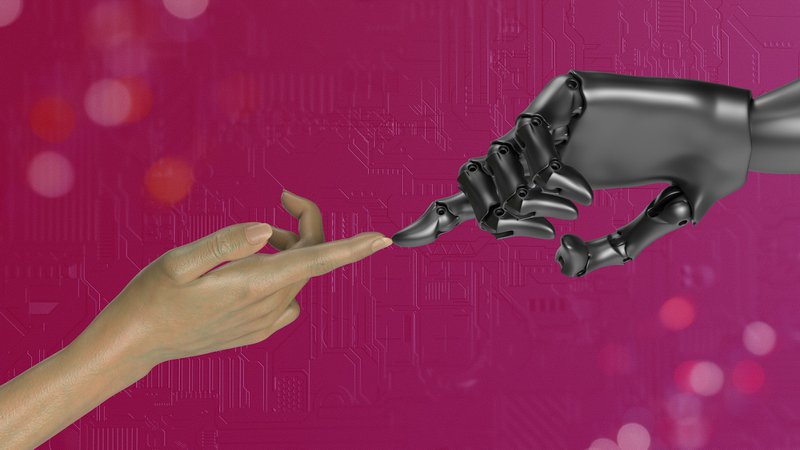
Digital Marketing Evolution: Mastering New Skills for the Ever-Changing Online Advertising Terrain
January 31, 2024
AI-Powered PPC Mastery: Strategies for Optimal Campaign Performance
February 20, 2024In the ever-evolving landscape of digital marketing, staying ahead of the curve is crucial for businesses looking to maintain a competitive edge. One of the most significant drivers of this evolution is artificial intelligence (AI). From personalized content recommendations to automated ad targeting, AI is revolutionizing the way marketers engage with consumers and optimize their campaigns. In this article, we'll explore the transformative impact of AI on digital marketing strategies and how businesses can navigate this paradigm shift effectively.

Understanding AI in Digital Marketing
Artificial intelligence refers to the simulation of human intelligence processes by machines, particularly computer systems. In the context of digital marketing, AI encompasses a wide range of technologies, including machine learning, natural language processing, and predictive analytics. These AI-powered tools enable marketers to analyze vast amounts of data, uncover valuable insights, and execute more targeted and personalized campaigns.
Personalization at Scale
One of the most significant advantages of AI in digital marketing is its ability to deliver personalized experiences at scale. By leveraging machine learning algorithms, marketers can analyze user behavior, preferences, and demographics to tailor content and messaging to individual consumers. From email marketing and website customization to ad targeting and product recommendations, AI enables marketers to deliver hyper-personalized experiences that resonate with their target audience, driving engagement and conversion rates.
Predictive Analytics and Forecasting
AI-powered predictive analytics empowers marketers to anticipate future trends, customer behavior, and market shifts with greater accuracy. By analyzing historical data and identifying patterns, machine learning algorithms can forecast customer preferences, identify potential opportunities, and optimize marketing strategies in real-time. This proactive approach enables businesses to stay ahead of the competition, adapt to changing market conditions, and maximize the ROI of their marketing investments.
Automated Advertising and Optimization
AI-driven automation is revolutionizing advertising, enabling marketers to streamline campaign management, optimize ad spend, and improve targeting precision. Platforms like Google Ads and Facebook Ads leverage AI algorithms to automate bidding strategies, identify high-value audiences, and deliver ads with maximum relevance and impact. Additionally, AI-powered analytics tools provide real-time insights into campaign performance, allowing marketers to adjust their strategies on the fly and drive better results.
Enhanced Customer Engagement
Chatbots and virtual assistants powered by AI are transforming customer service and support, providing instant assistance and personalized recommendations to users across various touchpoints. These intelligent conversational interfaces enable businesses to deliver round-the-clock support, resolve customer inquiries efficiently, and enhance the overall user experience. By leveraging AI-driven chatbots, marketers can engage with consumers in meaningful conversations, gather valuable feedback, and nurture leads throughout the customer journey.

Navigating the AI Revolution
While AI offers tremendous opportunities for businesses to optimize their digital marketing efforts, navigating this revolution requires careful planning, strategic investment, and continuous learning. Here are some key considerations for businesses looking to harness the power of AI in their marketing strategies:
- Data Quality and Accessibility: Ensure that your data infrastructure is robust, reliable, and accessible to AI algorithms. Invest in data collection, integration, and cleansing processes to maintain data accuracy and consistency.
- Talent and Training: Invest in talent acquisition and training programs to equip your marketing team with the skills and expertise needed to leverage AI effectively. Encourage a culture of experimentation and innovation to drive continuous improvement and learning.
- Ethical Considerations: Prioritize ethical practices and transparency in AI-driven marketing initiatives. Respect user privacy, adhere to data protection regulations, and disclose AI-powered interventions to build trust with your audience.
- Integration and Collaboration: Foster collaboration between marketing, IT, and data science teams to ensure seamless integration of AI technologies into your digital marketing ecosystem. Leverage cross-functional expertise to drive innovation and alignment with business objectives.
- Measurement and Optimization: Implement robust analytics and measurement frameworks to track the performance of AI-driven marketing campaigns. Continuously monitor key metrics, experiment with different strategies, and iterate based on insights to maximize ROI and business impact.
In conclusion, AI is transforming digital marketing strategies, enabling businesses to deliver personalized experiences, drive predictive insights, automate advertising, and enhance customer engagement. By embracing AI technologies and adopting a data-driven approach, businesses can navigate the complexities of the digital landscape, stay ahead of the competition, and achieve sustainable growth in the digital age. As the AI revolution continues to unfold, businesses that adapt and innovate will thrive in the dynamic world of digital marketing.


